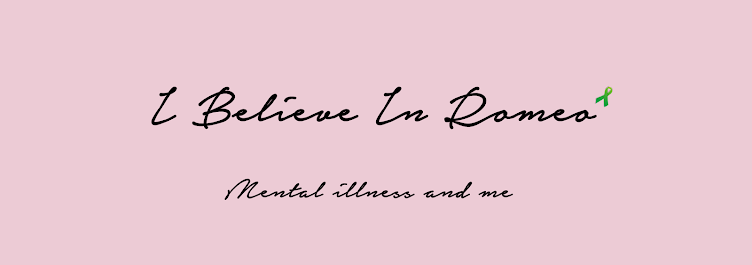"A diagnosed mental illness is rarely just a state of mind, but a very real inability to accurately perceive reality, keep emotional balance or maintain good cognitive function..."I don't usually talk about the 'science' behind mental illness, mainly because I just don't understand it. I know Depression occurs with a chemical imbalance. I've heard of dopamine and serotonin, and I can only guess that an increase or decrease in their levels can be triggered by experiences, events etc.
I also know that people's use of the word 'depression' is usually in relation to experienced sadness rather than a mental illness. And this causes difficulty. If I try to explain that I'm depressed, pop culture translates that into a state of sadness rather than me having difficulty functioning.
" ‘sadness’ is an insult to those suffering from depression."
"Depression is an accurate description of a mood, but aside from describing the symptom of the sufferer, the term doesn't factually describe what the illness is."This is particularly poignant when it comes to Schizophrenia:
"Schizophrenia comes from Greek: skhizein “to split” + phrēn “mind”, and yes, that’s what we might perceive when someone we know has schizophrenia – a change in character and other symptoms we might guess possible if someone’s mind were split in two. But that’s not what the illness is."If we want to break down the stigma around mental illness, Healy points out that we need to increase understanding of the neurological side to the disorders.
Like when it comes to medication. One of the biggest misunderstandings when it comes to mental illness is medication. The name 'anti-depressant' itself suggests they have a counter effect on depression. Yet, some people down right refuse to try them. Some people say they have no effect on them. For some, medication is enough to cure. But for others, like myself, it's only part of the process.
So what really happens when we take anti-depressants? How come they can't just restore cognitive function to 'normal'?
"Antidepressant and antipsychotic medications are not pills that will simply place happy or mellow thoughts in your head."Treatment of mental illness involves so much more than 'fixing' a chemical imbalance. People are encouraged to exercise, to eat healthily, seek counselling. There are techniques for changing your very way of thinking. Practices like Mindfulness, and CBT.
But often when we look at those 'quick-fixes' for mental health, they're never taken as seriously.
'Ooh, you should just exercise'. 'Why don't you just talk to someone'. 'This will pass'.
Mental illness is just as complex as other illnesses out there, and a single so-called cure for everyone does not exist. There is a lot of research yet to be done, but one thing that is agreed upon by doctors is that mental illness cannot be simplified.
We should never forget the seriousness of what mental illness presents:
"Depression is not simply sadness, it is an illness that can in some cases cause suicide"Healy's article gives a perspective to mental illness not often seen. It's difficult to address the complexity of a broad range of mental disorders in mental heath promotion, but it's hard not to agree with him that more could be done. Increasing knowledge of the psychological and neurological side of these conditions could be key in changing public perceptions and breaking down stereotypes. In fact he sums it up well in relation to campaigning when he states:
"a fresh rename might be a useful ally in the war against stigma"
Read the full article here.
N.B. I put specific emphasis on the coverage of Depression in the article, Healy also looks at Bipolar disorder and Schizophrenia.

No comments:
Post a Comment